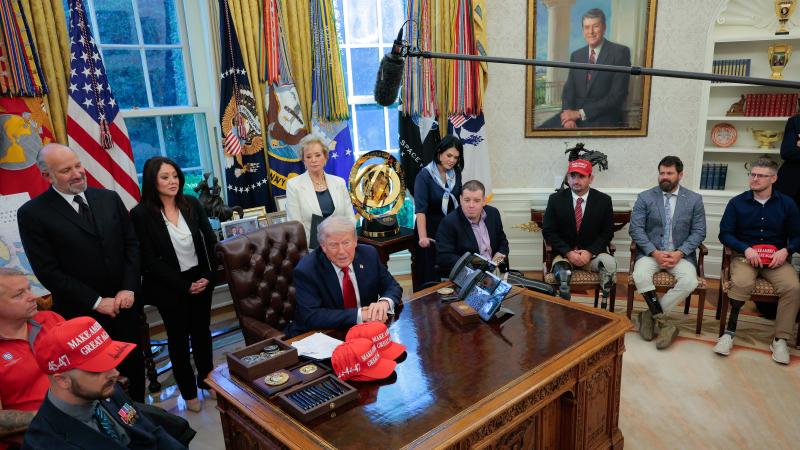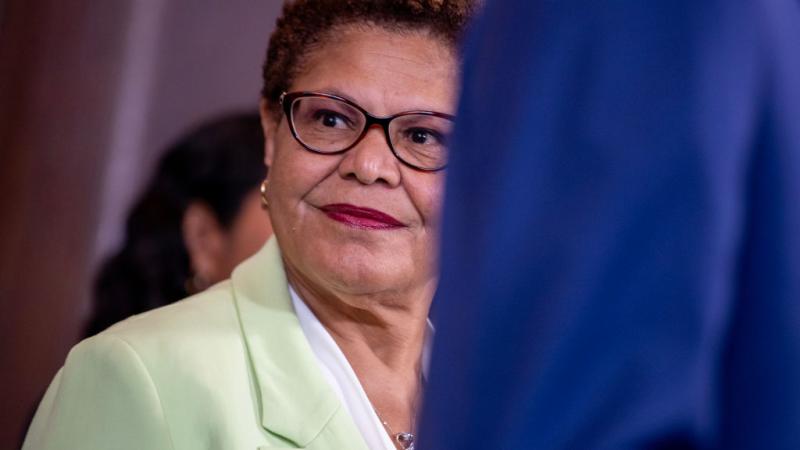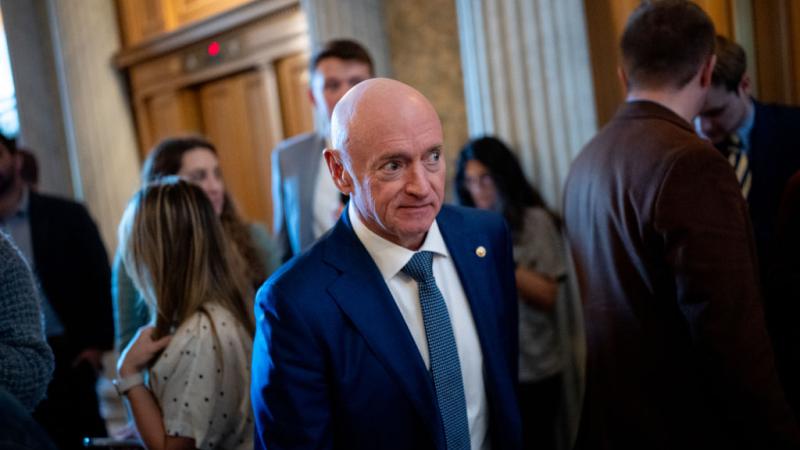Appeals court skeptical of challenge to Florida's ban on youth 'gender affirming care'
Democratic-nominated judge wary of ruling before Supreme Court decides Tennessee law that Florida's lawyer calls "identical" to its own.
Because "approximately seven" Florida lawmakers made anti-transgender statements when voting to ban youth from starting so-called gender affirming care, and state medical boards wrote biased informed-consent forms regarding such treatment, the Sunshine State's SB 254 is unconstitutional, according to a lawyer for transgender youth and their parents.
That argument was a stretch for Republican presidential nominees at an 11th U.S. Circuit Court of Appeals hearing last week, while the three-judge panel's lone Democratic nominee worried that a ruling in the next few months could be for naught.
The Supreme Court already heard argument on a Tennessee law banning puberty blockers, cross-sex hormones and surgical procedures to treat youth gender confusion – which Florida's lawyer Mohammad Jazil called "identical" to its own – and may set a different standard of judicial review than the 11th Circuit if the latter rules first in Doe v. Ladapo.
Judge Andrew Brasher, nominated by President Trump, pushed back on the challengers' lawyer Adam Unikowsky for urging the Atlanta-based appeals court not to wait for guidance from SCOTUS, which seems inclined to uphold the Tennessee law.
He asked Unikowsky whether U.S. District Judge Robert Hinkle, nominated by President Clinton, would have issued a permanent injunction against Florida's law if SCOTUS had already ruled the Tennessee law constitutional, noting Hinkle also didn't wait for the outcome of a petition for 11th Circuit full-court rehearing of a precedent foundational to Hinkle's ruling.
It seems like Hinkle was trying to "find a way around" Eknes-Tucker, which reversed a preliminary injunction against Alabama's similar law that was granted based on a too-high standard of judicial review, "on the idea that it might not be the law," Brasher said. The full 11th Circuit rejected the rehearing petition two months later.
Court reviews of state bans on pharmacological and surgical treatments for youth gender dysphoria, which typically resolves in the absence of social and medical gender transitions, come as formerly transgender youth seek to influence the Trump administration.
More than 100 detransitioners, family members and "other members" of their community signed an open letter urging the Senate to ratify Robert F. Kennedy Jr.'s nomination as Health and Human Services secretary, citing "many parallels we have seen in health freedom circles" and their belief that "Kennedy will not dismiss our narratives."
They praised his "impressive track record of advocating for true informed consent in healthcare" and willingness to risk his "public reputation for parents who have sought his help."
"We have witnessed the lack of research integrity and selective research" in the healthcare system, which threatens "parents who have disagreed or disapproved of treatment," stigmatizes the mental health problems underlying gender dysphoria and censors "physicians and mental health providers who disagree with care standards," the letter states.
Some signatories including Chloe Cole and Luka Hein are suing their transition providers. The letter was written by Diana Lutfi, a bioethics lawyer who also organized and wrote a friend-of-the-court brief on behalf of detransitioners to SCOTUS in the Tennessee case.
"Regulating gender dysphoria treatments is not to transgender individuals what a ban on yarmulkes is to Jews," Florida's Jazil told the panel, noting the challengers' expert witness conceded that gender identity doesn't depend on gender dysphoria.
The science must be "absolutely conclusive" against other forms of treatment, such as so-called talk therapy, for regulation of medical treatment to be discriminatory against trans youth, and Hinkle acknowledged that regulation without "animus" is fine, Jazil said.
Florida would have no legitimate interest in banning people with gender dysphoria from emergency rooms, Jazil agreed with Brasher, who repeatedly puzzled over what "discriminatory animus" means in practice.
Hinkle blocked the law based on such animus, applying the intermediate-scrutiny standard of judicial review rather than the much easier "rational basis" standard for the government to meet, which the 11th Circuit adopted.
Imagine an age-based retirement law for judges, Jazil said: It would show discriminatory animus if intended to force black judges to retire, because race is a protected class, but not if intended against judges from "rural counties," which is not protected. "We don't have a constitutional cheat code" that triggers heightened scrutiny, he said.
Obama nominee Judge Adalberto Jordan retorted that courts wouldn't need heightened scrutiny to strike down a law against a "non-suspect" class based on "invidious discrimination," such as forcing "lawyers with hair" to do "an extra million things to keep their bar licenses."
That's nothing like Florida's law, Jazil shot back. Hinkle wrongly denied the state the required "presumption of good faith" by assuming the Legislature as a whole, based on its "silence," agreed with the seven lawmakers who made anti-trans statements.
The trial judge wrongly assumed animus based on the informed-consent forms devised by two medical boards, given to youth who were grandfathered in as well as adults considering treatment, which emphasize its risks, Jazil said. It's also possible the forms were written that way as the "product of group writing done in open meetings."
The challengers' lawyer Unikowsky emphasized "the record shows beyond any doubt that a significant number of legislators and others involved in the adoption of the statute and rules pursued an illegitimate interest," not concerned with the safety of the treatment.
Judge Virginia Covington, nominated by President George W. Bush and serving on the panel by designation from her trial court, spoke only once, to protest that only a "few legislators" made discriminatory comments.
Unikowsky clarified the statements were "one piece of circumstantial evidence," as was the same-day signing of a law that prohibits teachers from using their own preferred pronouns in public schools, which together Hinkle inferred were intended to "deter people from transitioning."
The 11th Circuit heard a challenge to the pronoun law last fall after U.S. District Judge Mark Walker blocked it only pertaining to the plaintiff, Katie Wood. It hasn't ruled.
"I'm having a conceptual problem seeing" animus in the absence of the seven lawmakers' comments, just from Florida putting "the thumb on the scale against transition," Brasher told Unikowsky. "Why can't the state have the view that it's a bad idea?"
Florida is actually saying "a certain class of individuals shouldn't exist," whether their transitions are social or medical, and telling them to "leave the state," Unikowsky responded. It's distinct from the Tennessee law because Hinkle distinguished between laws motivated by "genuine concern" about treatment effectiveness and "bare desire for people not to transition."
If the state actually argued that research for medical transition was "of low quality" and the treatment may cause "issues with bone density" and other "long-term outcomes," that would be rational under Eknes-Tucker, Unikowsky said.
But the consent forms include "frightening" statements unrelated to treatment in the U.S., such as the use of problematic drugs abroad, and require medically unnecessary tests such as bone-density scans for people only on testosterone, he said.
A Swedish government-commissioned systematic review of treatment in 2023 found that blockers delay "bone maturation and bone mineral density" while patients on cross-sex hormones had "partially recover[ed]" bone health when they were studied at age 22. The researchers recommended a ban outside clinical trials – the same as Florida's law.
When Jazil protested that the medical boards collaborated with Equality Florida to bring in proponents of treatment to speak, Jordan speculated it was a ruse.
"You could try to have a completely open and nonjudgmental hearing process and use that as a mask for discrimination on the backend – 'Hey, let's make this look good,'" the judge said.
The Facts Inside Our Reporter's Notebook
Documents
Videos
Links
- SB 254
- 11th U.S. Circuit Court of Appeals hearing
- Supreme Court already heard argument on a Tennessee law
- permanent injunction against Florida's law
- The full 11th Circuit rejected the rehearing petition
- Chloe Cole and Luka Hein
- friend-of-the-court brief on behalf of detransitioners
- intermediate-scrutiny standard of judicial review
- The 11th Circuit heard a challenge
- Judge Mark Walker blocked it
- Swedish government-commissioned systematic review
















